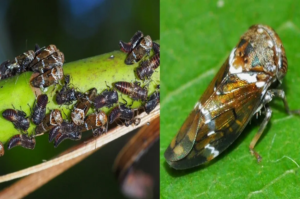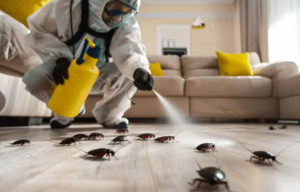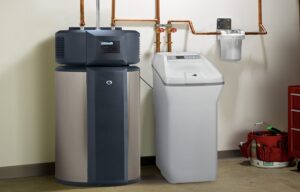How Rodents Spread Disease Indoors in Indianapolis
3 min read
Mice and rats are known carriers of diseases that can spread to humans. This is possible through contact with their droppings, urine, saliva, or contaminated food. Rodents can move through walls, attics, and pantries, contaminating wide areas. It is important to understand how these pests spread disease, so homeowners can protect their home and family from serious health concerns. Also, they can take steps with the help of a Pointe Pest Control technician to keep rodents out. If you are concerned about the presence of rodents in your home, check out pointepestcontrol.net to get the help you need.
Rodent Droppings and Urine are Hidden Health Hazards
Rodents leave droppings and urine everywhere they travel. These waste materials contain harmful pathogens that can cause illness when inhaled or touched. As droppings dry out, they break into fine particles that mix with household dust and become airborne. Breathing them in exposes you to bacteria and viruses linked to several serious diseases.
Deer mice particularly carry Hantavirus Pulmonary Syndrome. This disease can be life-threatening and spread when people breathe in dust from rodent waste. Also, Leptospirosis can spread through urine that contaminates surfaces or food.
Rodents can keep themselves hidden in attics, basements, and storage room, accumulating their droppings. Cleaning up rodent waste without proper protection can mean stirring harmful particles into the air. You can prevent exposure by sealing entry points and sanitizing affected areas with care.
Contaminated Food and Cooking Surfaces
Rodents search for food in pantries, cabinets, and kitchens. They gnaw through paper, cardboard, and plastic packaging to reach whatever they find edible. They contaminate food and cooking surfaces with saliva, droppings, and hair in the process. Also, they can spread Salmonella and Listeria this way. Even if food looks untouched, microscopic contamination can cause severe gastrointestinal illness.
In addition, wall and floor gaps in older homes make it easy for rodents to access food storage areas. Keep food sealed in airtight containers and clean up crumbs or spills to remove easy sources of nourishment. Also, thorough sanitation and professional pest control may be necessary to stop the spread of disease.
Bites and Scratches Cause Direct Transmission
Rodent bites or scratches can transmit infection directly. Rats and mice may bite when cornered or trapped. Their saliva can carry diseases such as Rat-Bite Fever, which causes fever, rash, and joint pain.
Pets can also help spread bacteria if they chase or catch infected rodents. A cat or dog that comes into contact with rodent saliva or droppings can carry germs on its fur or paws, spreading contamination around the home. Medical attention should be immediate if rodent bite occurs. Even small wounds can introduce bacteria into the bloodstream.
Parasites Hitching a Ride Indoors
Rodents may bring unwanted passengers into homes in the form of fleas, mites, and ticks. These parasites feed on rodents but also bite humans and pets once indoors. Fleas carried by rats can transmit murine typhus and plague, while mites can cause skin irritation and itching.
Ticks that feed on rodents may spread Lyme disease or other tick-borne illnesses if they move onto humans. Parasites can survive long after the rodents are gone, continuing the cycle of disease transmission.
Indianapolis neighborhoods with older housing or nearby wooded areas face higher risks of rodent-borne parasites. Regular pest inspections help detect both rodents and their hitchhiking parasites.
Contaminated Air and Dust Particles
Rodents can affect indoor air quality. Accumulated droppings, urine, and nesting materials create strong odors and release harmful particles. These particles can irritate lungs and spread pathogens through the air, especially when disturbed during cleaning or renovations.
Rodent nests built in ventilation systems or insulation can also release allergens and disease particles throughout the home. Inhaling these contaminants can cause headaches, coughing, or allergic reactions even if no one comes into direct contact with the rodents themselves.






